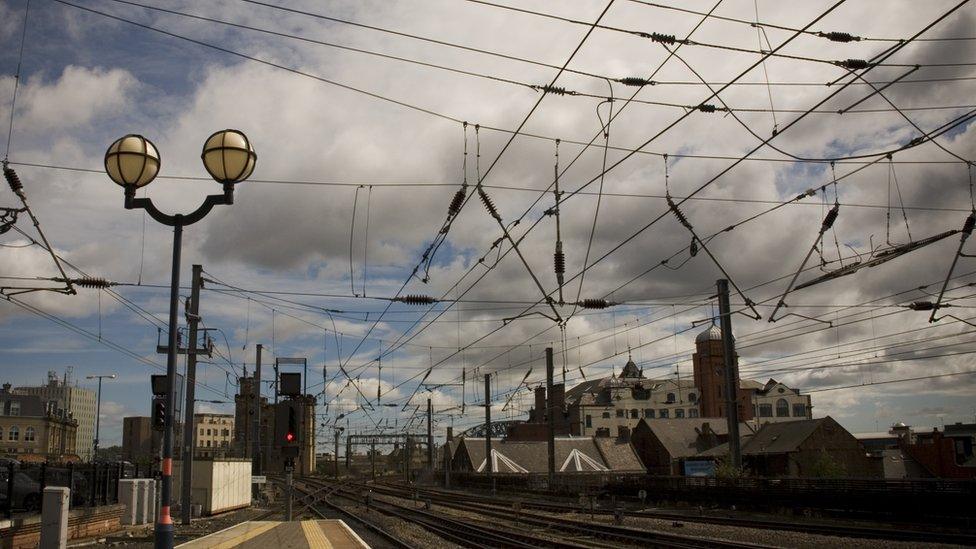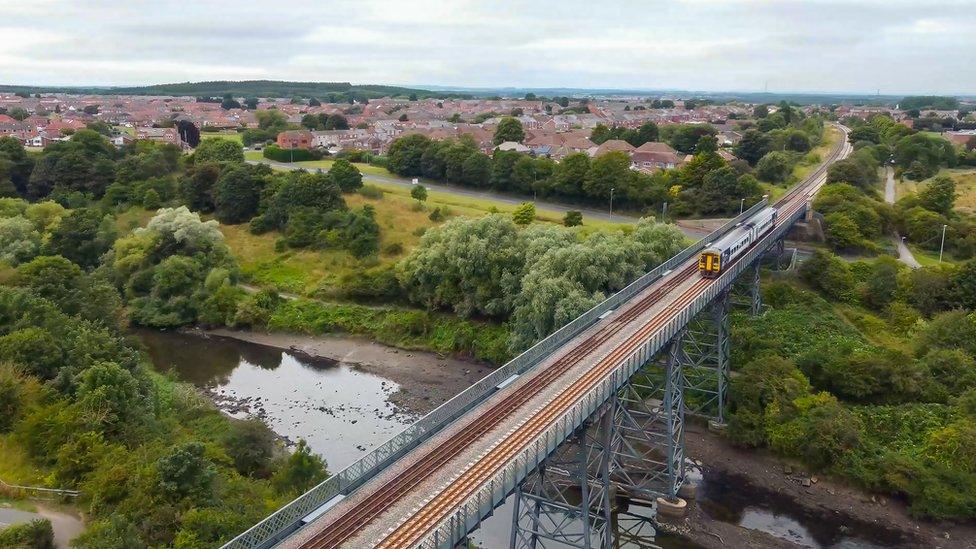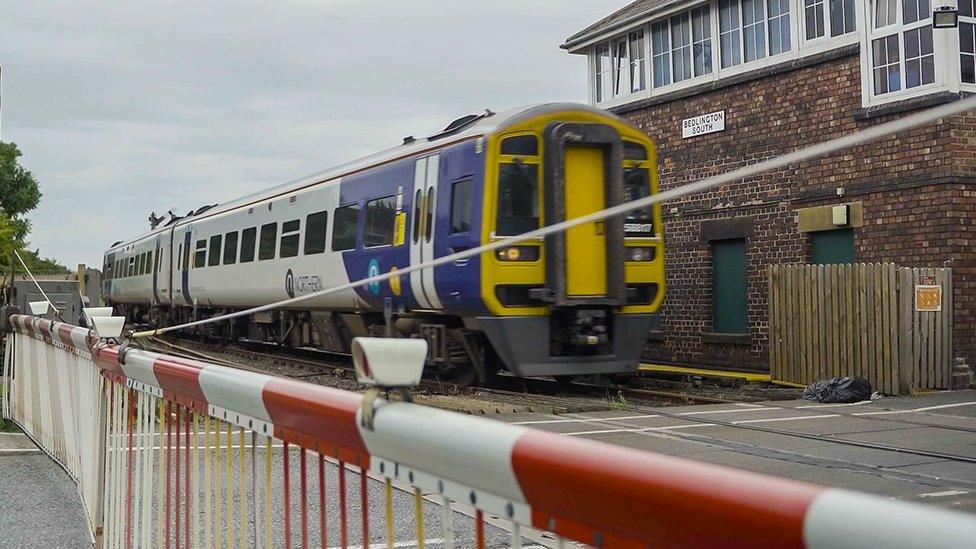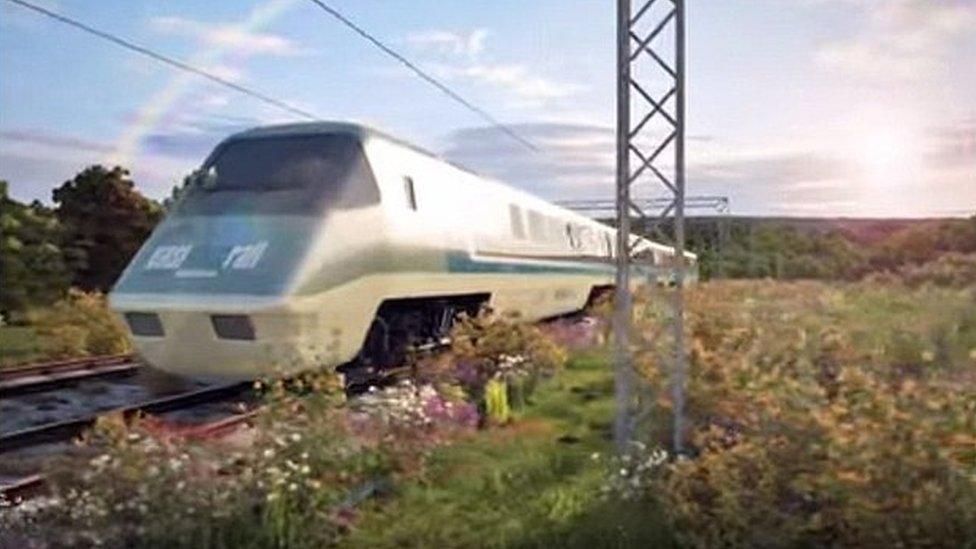Northumberland Line: Railway 'could create economic powerhouse'
- Published

The Northumberland Line could connect Blyth and Newcastle with half hourly services and journey times of under 25 minutes.
An "east coast economic powerhouse" stretching from Edinburgh to Leeds could be created if the Northumberland Line rail scheme goes ahead, a public inquiry has been told.
A government inspector is assessing the pros and cons of reinstating passenger trains between Newcastle and Ashington for the first time since the 1960s.
Northumberland County Council believes it will bring huge economic benefits.
The hearing, in Blyth, is expected to run for about four weeks.
The inquiry, which is being overseen by inspector Richard Clegg, is required to rule on a Transport and Works Act Order, external which is needed before any new rail scheme is authorised.
Richard Turney, a lawyer for Northumberland County Council, told the opening day of the hearing: "Time and again, transport infrastructure schemes have been shown to catalyse economic growth.
"The scheme can also help distribute growth through economic networks across the surrounding areas.
"Since the region brings together the Borderlands, it could help create a greater east coast economic powerhouse from Edinburgh to Leeds, if it has sufficient connectivity.
"Whilst the scheme is decidedly and proudly a regional scheme, it contributes to sustainable economic growth at a national level and the national economy would benefit from more efficient transportation of people, business creation and higher employment rates."

The Department for Transport has already allocated £34m to the scheme, which includes funds for preparatory works and land acquisition
Mr Turney described south east Northumberland as "defined by withdrawal for over half a century", the Local Democracy Reporting Service said.
"In the 1960s, long-running passenger services on [the line] were terminated.
"In the 1980s, key industries, ship building and mining, collapsed, resulting in high levels of unemployment and deep pockets of social deprivation.
"In recent years, economic activity and employment opportunities have moved to urban centres, like Newcastle.
"The region lacks a reliable, affordable, comprehensive public transport network that connects its communities and the key economic hubs - the status quo needs to change."
Objections
Work on the railway - formerly known as the Ashington, Blyth and Tyne Line - would see 18 miles of track upgraded.
Six new stations - at Ashington, Bedlington, Blyth, Bebside, Newsham, Seaton Delaval - would be needed along with infrastructure changes.
Planning permission has been granted for the stations serving the line, which has operated solely as a route for freight traffic since the 1960s.
Plans for stops at Ashington, Bedlington and Seaton Delaval have been approved; proposals for stops at Blyth and Newsham are expected to be ruled on later this year.
North Tyneside Council has approved changes to the Northumberland Park station on the Metro, which will allow travellers to switch between the two services.
However, about 30 objections have been raised about the plans.
Among those due to give evidence are housing provider Bernicia Group, Northumberland Estates (on behalf of the Duke of Northumberland), Viscount Ridley (the former chair of Northern Rock) and Malhotra Commercial Properties, which controls a large portfolio of land across the North East.

Follow BBC North East & Cumbria on Twitter, external, Facebook, external and Instagram, external. Send your story ideas to northeastandcumbria@bbc.co.uk, external.
- Published12 August 2021

- Published23 January 2021

- Published18 October 2020
